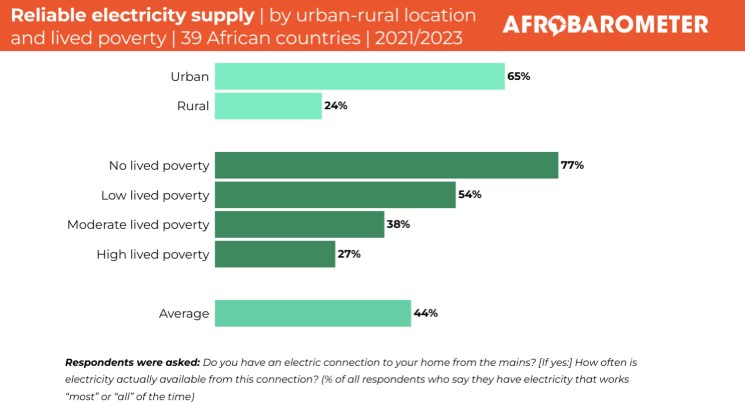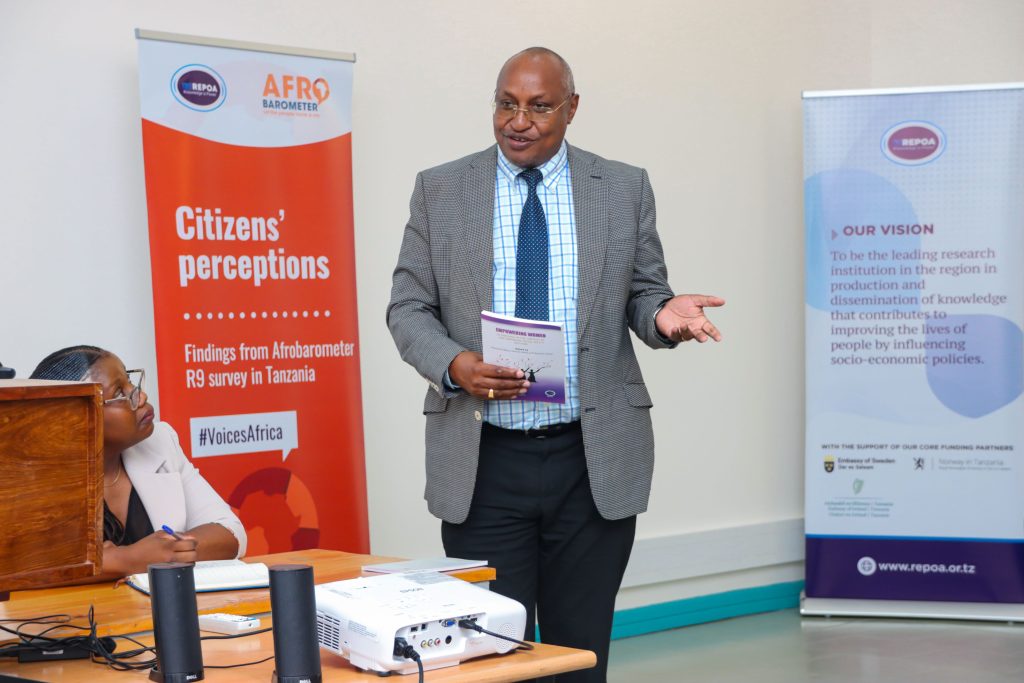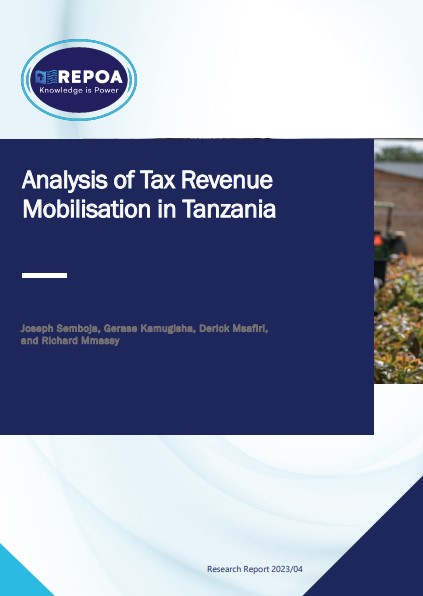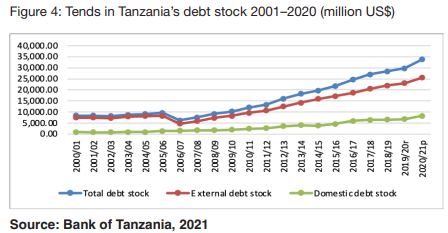Energy gaps: Slight, uneven progress still leaves many Africans without electricity

Fewer than half of households enjoy a supply of electricity that works “most” or “all” of the time. READ MORE…!
Tanzanian youth cite health, water, economy as priority problems government should address

The Afrobarometer Round 9 survey, conducted in 2022, sheds light on how the youth of Tanzania perceive the country’s political and economic landscape. Survey findings show that while Tanzanian youth are more educated than their elders, they are also more likely to be unemployed. A majority of young Tanzanians think their country is moving in […]
Analysis of Tax Revenue Mobilisation in Tanzania

The study seeks to assess the feasibility of increased domestic revenue for financing Tanzania’s development aspirations. The assessment is undertaken for the aggregate tax revenue as well as its four major tax categories of income tax, value-added tax (VAT), excise duties, and import duties. This is a unique contribution of this study to the literature, […]
Public debt and private sector financing in Tanzania

Public debt is an important macroeconomic policy area of interest for governments, researchers and academia. This study investigates its impact on private sector financing in Tanzania. Firstly, it discusses the evolution of public debt since independence, focusing on the legal and policy framework for its management and the debt relief strategies adopted. Secondly, it looks […]
Gender balance in Tanzania: Successes and Challenges
This policy brief highlights successes and challenges in the promotion of gender equality in political, social, and economic aspects in Tanzania. It argues that it is not possible to attain gender balance without knowledge of the existing status quo on the promotion of gender equality. This brief uses data from the Demographic & Health Survey, […]
Tax Capacity and Effort in Tanzania
This policy brief explores on tax capacity and effort in Tanzania. The brief has it that Tanzania is utilizing less than half its potential tax capacity. Not only does the income tax category has more potential than the other tax categories but also has the lowest effort in tax revenue collection. It also underscores that […]
The Performance of Tax Revenues in Tanzania: An attempt at explanation
This policy brief explores on the Performance of Tax Revenues in Tanzania. The brief has it that the performance of Tanzania’s Tax revenue collection is below the recorded averages in Sub- Saharan Africa, SADC, and East Africa. Income tax and VAT jointly contribute around two-thirds of the country’s tax revenues. It also explores that the […]
Should Tanzania be concerned about its budget deficit?
This policy brief explores on Tanzania’s budget deficit as it rose 15-fold from TZS 0.4 trillion to TZS 6 trillion between 1999/00 and 2020/21. The brief has it that generally, the budget deficit has been financially manageable as the country’s debt service has not exceeded the economy’s ability to continuously fund it. However, the consequences […]
Finance and African development – dynamics and underlying debt risks
This policy brief looks at the Least Developed Countries—32 African countries classified by the UN as LDCs, whereas the rest are classified as either Lower Middle-Income Countries or Middle-Income Countries. It looks at the Gradual graduation from Least Developed Country (LDC) category as being constrained by lower incomes, social and health challenges, and limited finances […]
Enhancing Competitiveness of Rice Industry in Tanzania
This policy brief assesses rice production and consumption in Tanzania, the cultivated area of rice and yields obtained. It also presents the market dynamics of the rice sub-sector by assessing its exports, imports as well as its prices in the domestic and international market. Lastly, it presents challenges hindering trade competitiveness and provides policy recommendations […]
Learning Environment and Performance
of Primary Education in Tanzania
This policy brief aims at assessing learning outcomes by looking at inputs, commitments and competencies of service providers in the education and health sectors. The survey was conducted in two rounds in 2014 and 2016/17. The two surveys had been preceded by a pilot conducted in 2010 in Tanzania and Senegal, which allows Tanzania to […]
Enhancing Competitiveness in the Leather Industry in Tanzania
This policy brief assesses trade development and competitiveness of the leather value chain in Tanzania, focusing on market competitiveness and production capacity. It also assesses the challenges hindering the trade competitiveness of the leather industry and provides recommendations on how to boost the trade competitiveness of the leather sector given that Tanzania has a significant […]
Enhancing Competitiveness of Seaweed Industry in Zanzibar
This policy brief analyses recent trends in seaweed production and trade in Tanzania. It aims to appraise contemporary understandings of market dynamics which are key to informing competitive trade policy practices as well as implementation of Zanzibar’s Development Vision 2050 which among others, prioritizes the development of a competitive blue economy in the transformation of […]
Enhancing Competitiveness of Horticultural Industry in Tanzania
This policy brief analyzes recent trends in horticultural production and trade in Tanzania. It aims to appraise contemporary understandings of market dynamics which are key to informing competitive trade policy practices as well as implementation of Tanzania’s third Five-Year Development Plan 2021/22 – 2025/26 which prioritizes the development of a competitive economy and the transformation […]
Learning Environment and Performance of Primary Education in Tanzania
Since independence in 1961, Tanzania declared war against three social enemies, which are ignorance, poverty, and diseases. The fight against ignorance was to succeed by giving special attention to the education sector. Thus, throughout the history of Tanzania, education is regarded a key priority for development that impacts the lives of people (Rajani & Omondi, […]
Healthcare Delivery Environment and Performance in Tanzania
Good health is indispensable towards promoting the well-being of people as well as the nation’s development (World Bank, 2016). Tanzania like many other developing countries has marked health as a priority matter that needs much attention – making the country committed to goal 3 of the Sustainable Development Goals of 2030 (Lee & Tarimo, 2018). […]